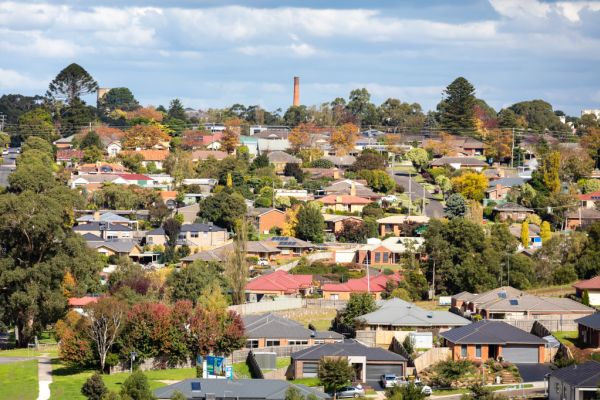The proposal has left the real estate and construction sectors up in arms, describing the 1 per cent increase in stamp duty as “a tax on families, jobs and property construction”.
AMP Capital chief economist Shane Oliver said those with more modest means should be concerned about the impact that the rise in stamp duty, from 5.5 per cent to 6.5 per cent on $2 million homes from July 1, will have.
Some suggest it won’t just be purchasers of expensive property who will be affected. Photo: Greg Briggs
“I guess there isn’t a lot of sympathy for high-end property buyers, but it’s fallacious to think you’re only going to be impacting the top end,” Dr Oliver told Domain on Monday. “It does affect the whole property market.”
Dr Oliver said the extra stamp duty is likely to have the effect of pushing people into a cheaper property and if they can’t afford to buy a $2 million home, then they’ll buy one for $1.8 million.
“It’s a ripple effect and makes these ‘cheaper properties’ more expensive as people are squeezed out of the top end,” he said. “The impact to a $500,000 home may be minor but it’s still likely to have a big impact on properties worth $1 million or even $800,000.” Hampton, which recorded a house price median of $2.06 million in the March quarter, and Hawthorn East, which had a median of $2.05 million, were the closest to the new stamp duty threshold, on Domain data.
Westpac senior economist Matthew Hassan said the market was likely feel the shock from the extra costs in a similar way to what happened before the last federal election in 2019, when buyers held back.
“A couple of years ago, we were worried about the potential change of federal government and changes to capital gains [tax incentives for investors]. That spooked the market for a while,” Mr Hassan said. “It doesn’t sound like the changes are designed to cool the market, but it can change quite quickly.”
Having more expensive charges for property transactions could take the edge off the current property market recovery, and act as a signal if property sales slow at the top end, Mr Hassan said, especially because more expensive properties were an indicator of upturns and downturns in the market.
“We do often see the top-end leading the cycle and certainly since the start of the year the top tier has led the way,” he said.
While Victoria looks to up its stamp duty charges, the NSW government had shown a clear intention to move away from the property transaction charge, looking at a land tax instead, Mr Hassan said.
“Everyone is saying stamp duty is one of the most inefficient taxes we have in Australia — it’s an impediment to the market — we really should be looking at moving away from state government dependence on stamp duty.”
The extra taxes are being seen by the Victorian government as a way out of COVID-19-related debt in Victoria, caused in part by months of lockdowns to stop the spread of coronavirus.
The local property industry went into hiatus at the time of the lockdowns, but since being able to operate at full pace, Melbourne’s house prices have boomed, with low interest rates helping to fuel the recovery.
Those booming prices have allowed buyers like Eamonn Keogh and his wife to have enough equity in their current home to buy a bigger family home at the $2 million price point.
They are selling their house in Ringwood North and plan to buy a larger home in Park Orchards, where they can live with their three children and parents.
Mr Keogh, a mortgage broker, said the changes to stamp duty meant he would have to borrow more. It will push him past borrowing 80 per cent of the house’s value, meaning he will also have to cover lender’s mortgage insurance costs.
“We weren’t looking for a $2 million property initially but because of the market our house is worth a lot more,” Mr Keogh said. “We’re using the extra equity in our home. We don’t have cash lying around to cover extra stamp duty.
“There’s a big bracket of people like us caught up in all this,” he said.
Mr Keogh said he believed the extra costs of stamp duty would ultimately get passed on to other buyers as home sellers looked to cover the costs.
While home buyers are bracing themselves for extra costs, the property industry has started to bite back. At a press conference outside the Victorian Treasury building on Monday afternoon, the Real Estate Institute of Victoria, Property Council of Australia, Urban Development Institute of Australia, Housing Industry Association and Master Builders Victoria asked for more consultation over the hike in stamp duty.
It’s the first time in 18 years all four have come together to lobby the government about extra costs for the industry. They are expected to meet with the government on Wednesday to speak about stamp duty and other new taxes being proposed.
